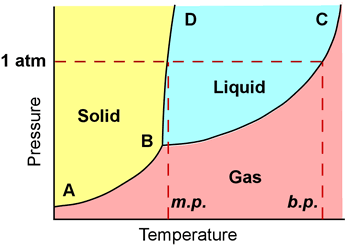You may call yourself that, but it's a misnomer. An alternative theory is a plausible theory which is not as congruent with all of the relevant science as the adopted theory. In order to call yourself a theorist, you would need to have credentials in physics. From what I've read of your posts, you're simply someone who never got very far in your education. That excludes you from the class of people properly called "theorists".Aqueous Id
As an alternative theorist
As far as I can tell you have some unexplained bias against science in general, but particularly in relatively advanced topics of physics. That makes you come across merely as a crank.
You mean wild ideas. Theories don't come from the imagination. They are the explanations given after careful consideration of all the evidence. They have a purpose--to fill a gap in human knowledge and understanding, usu. concerning some basic principle consistently observed in Nature.I have written my own theories,
Uniqueness is useless, as is length. All that's needed is a plausible chain of logic establishing that an explanation is needed (a hole in knowledge exists) followed by a careful and thorough treatment of the evidence and the logic leading to the new explanation. To even begin to do this requires years of basic skill development followed by years of research (employing those skills). Without that, you have no basis for claiming anything.a book of some 400 pages long of totally unique theory which can be viewed at pantheory.com.
Then they're invariably wrong. To arrive at a valid theory you have to have a valid open question that demands an answer. Without that, there is no premise for theorizing. Nature isn't incidental to theory. It's the opening set of problems which describe the unknown, from which the theory evolves, after careful consideration of all of the relevant evidence. Based on your posts, you couldn't even pass the freshman exams. That puts you about 10 years away from honestly calling yourself a theorist, and then only by devoting yourself to the work, honing your skills, and familiarizing yourself with hundreds of relevant papers on the topics at hand.The theories involve many of their own equations including those of cosmological distances, brightness and related measurements which are very different from mainstream equations and theoretical models.
Don't confuse my statements on first principles as anything even related to theory.Most of the things you have said are certainly mainstream theory,
You can't possibly know what is better without mastering the subject matter, usu. at the doctoral level.but I think there are better explanations for most everything in modern physics.
That's not a theory. It's just an opinion. And an ill-advised one. As long as you evade the empirical data, even your opinions are doomed.For instance my last theoretical paper, link below, was contrary to the dark energy hypothesis and the Big Bang model.
That sounds ridiculously ignorant of freshman level physics.With others, I expect to publish my next paper in late 2014, which will explain my theory of gravity which is contrary to both General Relativity and dark matter.
People like you always state this backwards. Observation comes first, then the issues, apparent inconsistencies or questions raised from the observation. The process of developing a theory is the process of resolving those open issues, or at least chipping away at them. It's impossible to do that without an advanced degree (usu. a PhD) in the subject matter. So it makes no sense to me why folks like you feel like you can skip roughly 10 grade levels (I'm assuming you have about a 7th grade proficiency in science) -- and promote yourself to the level of an expert, without actually ever passing a freshman physics exam. That's the hallmark of a crank, not a theorist.It will contain gravitational formulations confirmed by observations,
Not possible. You can't be better at anything without actually performing the work. How or why you folks think physics is a game to beat makes no sense to me. You're only hurting yourselves by depriving yourselves of an education in the field.and more like MOND gravity but with a stronger theoretical basis.

